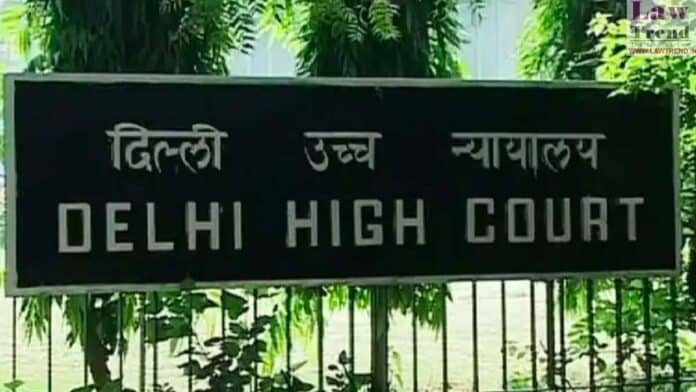The Delhi High Court on Tuesday sought responses from the Centre and the Delhi government on a plea challenging the constitutional validity of various provisions of the law which allows manual scavenging and creates an “unreasonable classification” between those cleaning sewers and septic tanks manually and those doing it while using protective devices.
The petitioner has said the law has failed to eradicate the “dehumanising” practice of manual scavenging.
A bench of Acting Chief Justice Manmohan and Justice Manmeet PS Arora issued notice to the Union Ministry of Social Justice and Empowerment and the Delhi government on the petition.
The high court granted eight weeks to the authorities to file their replies and listed the matter for further hearing on July 4.
The plea sought striking down of several sections of the Prohibition of Employment as Manual Scavengers and their Rehabilitation Act, 2013 and the relevant Rules for being violative of Article 14 (equality before law), Article 17 (abolition of untouchability), Article 21 (protection of life and personali liberty), and Article 23 (prohibition of traffic in human beings and forced labour) of the Constitution.
Petitioner Kallu, who works as a sewer and septic tank cleaner, sought a direction to the authorities to provide rehabilitation and other benefits to the families of sewer cleaners and septic tank cleaners, families of persons engaged in carrying, handling, disposing of human excreta with protective gears and devices, families of persons engaged on daily wages, temporary basis and jajmani for carrying, handling, disposing of human excreta in the same way as provided to the families of manual scavengers.
He said he is engaged in collecting and transporting human excreta by means of sewerage network and tanks for decades and lost his brother who died in 2017 while performing hazardous cleaning’ (sewer cleaning) in Lajpat Nagar in the national capital.
The petition, filed through advocate Pawan Reley, contended that the provisions of the Act and the Rules still allow manual scavenging and cleaning of sewer and septic tanks either manually or with protective devices and paves the way for untouchability.
“These sections promote the concept of compromised dignity’ which is alien to the Indian Constitution and allows the idea of purity and pollution to continue under the garb of sanitation work and invisibilising manual scavengers is a violation of the constitutional right to life with human dignity and does not stand the constitutional test manifested in the expansive and anti-exclusionary right to life,” the plea said.
It contended the “cosmetic effect” created by Explanation (b) of Section 2(1)(g) not only fails to eradicate the dehumanising practice of manual scavenging and do justice to them but also makes this practice legitimate in the eyes of law by creating an artificial classification between the manual scavengers on the basis of protective gears.
Also Read
“Therefore, all the benefits such as that of rehabilitation, scholarships etc. have been snatched away from manual scavengers with protective gears for which they are equally eligible like the manual scavengers without the protective gears without considering the fact that the nature of work remains the same,” it said.
It contended that explanation (a) of Section 2(1)(g) of the MS Act, 2013 is also discriminatory in nature because it only postulates regular or contractual employees and has not included the person removing human excreta for daily wages or temporary workers and jajmani (lower castes performing various jobs for upper castes in return for foograins or other goods).
“This explanation has created a further unreasonable classification between the manual scavengers because it excludes the daily wage, temporary workers, and jajmani workers to come under the ambit of Section 2(1)(g) (definition of manual manual scavenger) thereby making them redundant to avail the benefits for which they are absolutely eligible because the nature of work which is to clean, carry, dispose or handle in any manner the human excreta remains the same whether employed on daily wage basis or contractual or permanent basis, the plea said.
It said the very objective of the Manual Scavenging Act has been tarnished by enacting Section 39 which gives the central government power to allow manual scavenging for six months.




